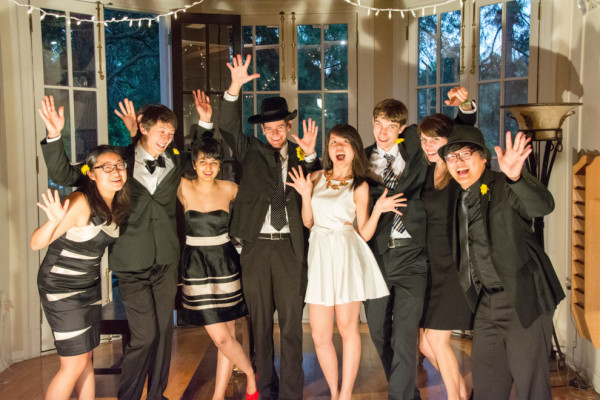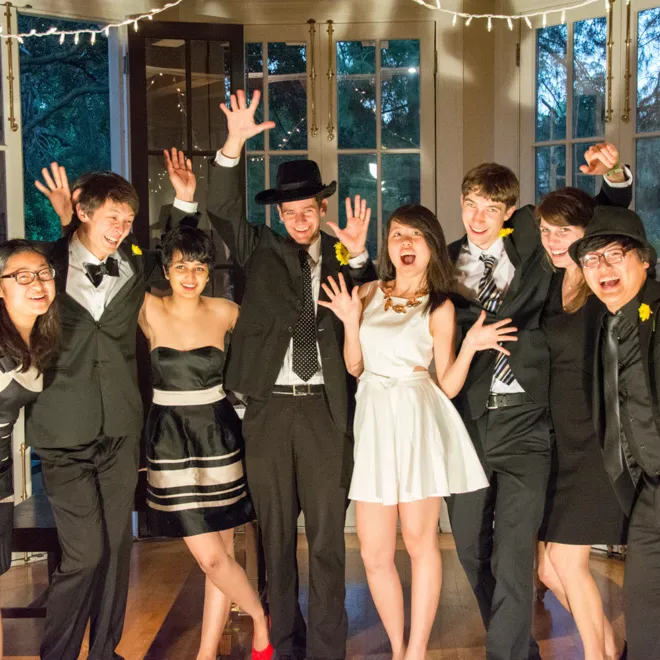
Between Disney mash-ups, romantic classics and accelerated pop renditions, Stanford’s a cappella groups have quite the collective repertoire. Yet her freshman year, Michelle Jia ’16 recognized an unsung niche: vocal jazz. What exactly is vocal jazz?
Perhaps, a more accurate answer begins with what vocal jazz is not.
“Elevator music. For me, there’s a scale of music from elevator music, which is background noise, to vocal jazz on the other side of the spectrum,” said Jia. “With elevator music, you almost forget that you’re listening. With vocal jazz, if you’re not 100 precent devoted to listening to every moment, you’ll miss it.”
Because of her passion for vocal jazz, she founded Volta, Stanford’s newest vocal jazz group, just last year.
Already an experienced pianist and oboe player, Jia was encouraged by a musical director during her sophomore year of high school to try out singing. She soon got involved with a jazz a cappella group, and she brought her passion with her to Stanford.
“A good ensemble will just steal you. It stops time. That’s what I’ve been guided by, to make music like that. That’s what we want to do. Basically to stop time.”
Stopping time, as it turns out, is no minor feat.
A small group of 8 to 12 members, Volta covers a range of sub-genres from mellow ballads to Latin and fast swing. The team uses professional arrangements from widely acclaimed groups, such as The Manhattan Transfer, The Real Group and New York Voices. With songs that involve complex chords and close harmony, in which notes are typically no more than an octave apart, Volta members need practiced ears and skillful pitch.
As Volta Assistant Director Jon Renslo ’16, explained, “Jazz often comes across as sounding laidback, easy-going. We’re trying to focus on getting to that easy sound.”
Jia added, “It takes a lot of work to sound like you’re not doing a lot of work.
Unlike many vocal groups on campus, Volta does not usually supplement its music with choreography. In fact, at last Monday’s O-Show, an annual showcase of student a cappella groups, Volta performed one piece while sitting down. Volta’s advanced musical selections at O-Show also revealed the group’s progress over the course of its first complete year.
Renslo remembered a moment at a past rehearsal when the group received complicated sheet music to The Real Group’s “Pass Me the Jazz.” He said, “People looked at us like, ‘How are we going to learn this?’ Now we’re singing it at the beginning of the year. We’ve come a long way.”
Even so, Volta continues to fine-tune visions for its future.
In the founder’s words herself, “Ultimately, before I graduate, I would really love to feel like this group has a life of its own and it actually doesn’t need me — to see that it itself wants to exist.”
Contact Jenna Shapiro at jennshap ‘at’ stanford.edu
